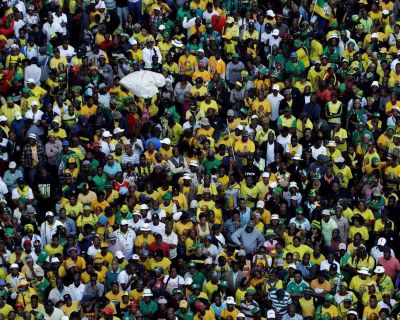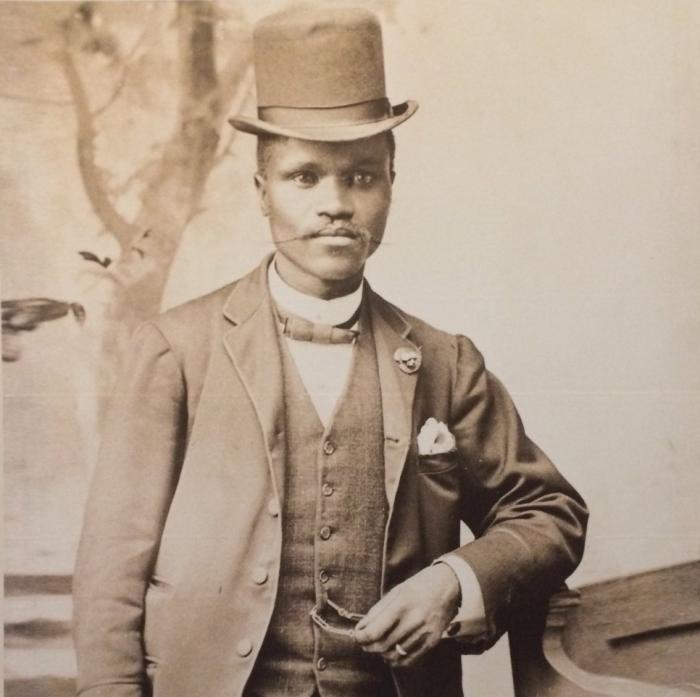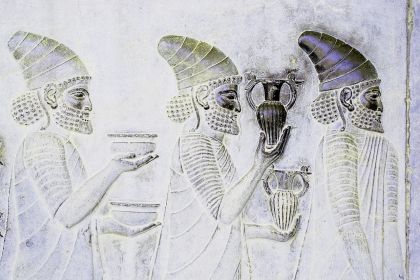Choir
5 African states adopted the liberation song by Enoch Sontonga as the national anthem

Supporters of African National Congress in Johannesburg
Genre: Anthem
Piece of Music: Nkosi Sikelel' iAfrika
Nkosi Sikelel 'iAfrika has been the most frequently sung tune throughout the African continent for over a hundred years. With its multilingual lyrics, the song has always been symbolic of freedom and independence since it became the official anthem of the African National Congress.
The poem behind Nkosi Sikelel 'iAfrika (God Bless Africa) was written by Enoch Sontonga who served as a teacher and choirmaster at the Methodist Mission School situated just outside Johannesburg. Originally conceived as a prayer for the blessing of the country and people, the poem was instead set to music by the author himself.
Little is known about the author of the song that united the continent, though studies of the past decades have shed some light on his fate.
Enoch Mankayi Sontonga was born in Uitenhage, South Africa around 1873 in the Xhosa-speaking Mpinga clan of the Tembu tribe. After graduating at the Lovedale Institution, he received his appointment at the same school where he spent his very short life as a teacher, preacher, and leader of the school choir with whom he performed throughout the country.

It is believed that Enoch Sontonga wrote the first stanzas of the Nkosi Sikelel' iAfrika in 1897 and, providing music a year later, included the composition in the repertoire of his choir. The song quickly gained popularity, spreading across the country with many other choral ensembles picking up the melody.
Unfortunately, the author did not see even a fraction of the fame his song has gained over time. Enoch Sontonga died in 1905 as reported by the Xhosa newspaper Imvo Zabantsundu:
"Sontonga, E. Johannesburg. On 18 April 1905 Enoch M Sontonga passed away. He was not sick this time. He, however, suffered at times from stomach ache to the extent that he would predict that these were his last days on this earth."
A decade after Sontonga’s death, the song became the official anthem of the African National Congress while the lyrics were supplemented by the famous Xhosa-language poet Samuel Mqhayi. For decades, during the apartheid regime, the song became the unofficial national anthem of South Africa though it was naturally banned by the regime.
Listen to Nkosi Sikelel' iAfrika performed by Ladysmith Black Mambazo:
With the 20th century wave of independence movements in African countries, Nkosi Sikelel 'iAfrika was hailed as the official anthem in Namibia, South Africa, Tanzania, Zambia, and Zimbabwe. Having undergone many translations and changes in lyrics, the song spread throughout the continent and even overseas to reignite the spirit of liberation.
There are claims that Enoch Sontonga had a substantial creative output of which he kept records in his notebook but neither the notebook itself nor other supporting documents survived. This fact casts doubt on his composing abilities, forcing many to believe that the melody for the Nkosi Sikelel' iAfrika was borrowed.
The anthem Aberystwyth written by Joseph Perry is named by some to be among the possible inspirations for Sontoga's tune, but both the melody and structure of the Aberystwyth have no similarities with the famous African anthem in its current form.
Listen to Joseph Perry's Aberystwyth performed by Morriston Orpheus Choir:



